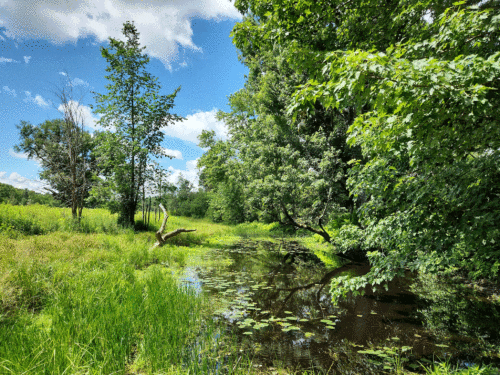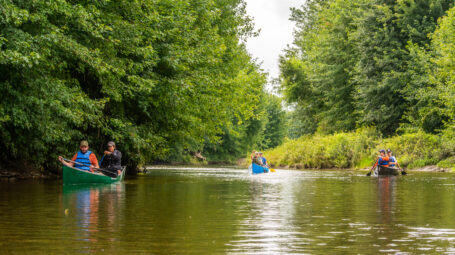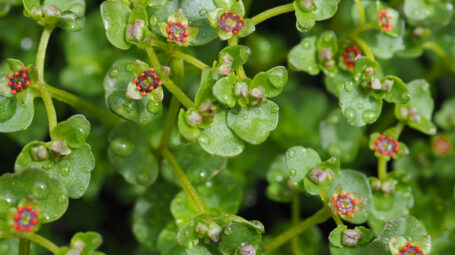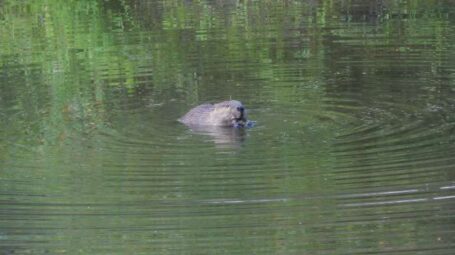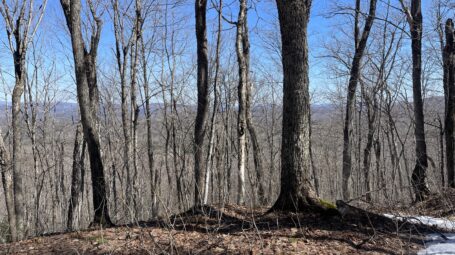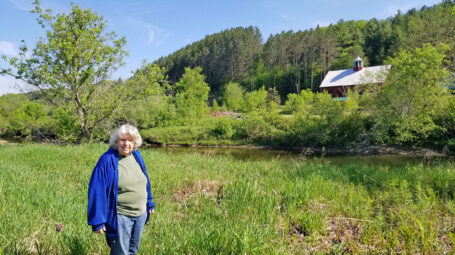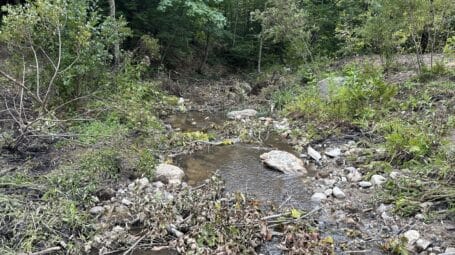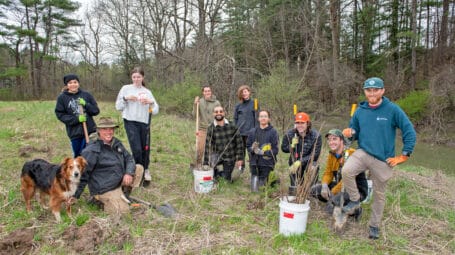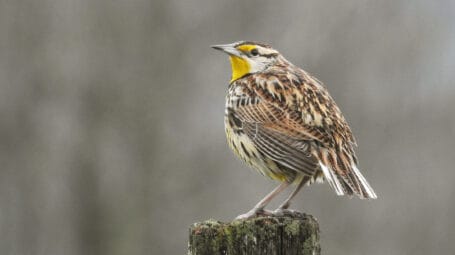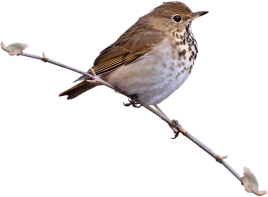Dairy farmers and conservation groups protect and restore land along the Missisquoi River in Westfield
From its headwaters in Lowell, the Missisquoi River meanders through the Northeast Kingdom. It winds through wide valleys, tumbles down rocky gorges, and crosses the border into southern Quebec. It then flows into Lake Champlain. The 88-mile river is a priority in the state’s clean-water initiatives.
Robert and Joanne Bathalon run an organic dairy along the Missisquoi River in Westfield. Robert’s parents purchased the land back in the early 1950s; Joanne and Robert bought the farm in 1999. Early on, they transitioned to organic practices and began shipping organic milk. In 2008, they conserved their 150+ acre farm with us, protecting productive farmland, woods, wetlands, and land along the Missisquoi River.
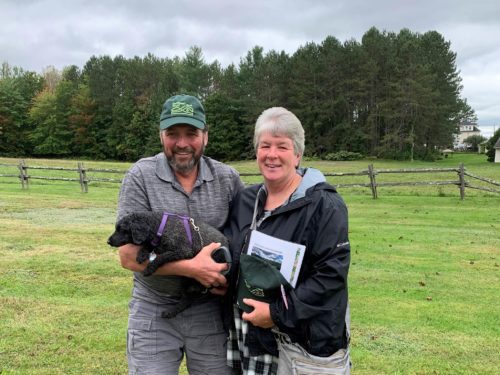
Helping the climate, wildlife, and the Missisquoi River through conservation
In the fall of 2022, the Bathalons worked with us and the Vermont Department of Environmental Conservation to undertake additional conservation measures on 38 acres of their farm. They took pasture out of active use in order to restore wetlands and over a mile of river frontage.
“Allowing the river the freedom to flow across low-lying land and neighboring wetlands will reduce flood damage by slowing down the water during major storms,” said VLT’s Stewardship Director, Cara Montgomery, who worked with Robert and Joanne on the project.
“Projects like these are furthering clean water efforts throughout the state,” Cara added. “We are also able to help farmers who are implementing these conservation practices by compensating them for placing these restrictions on the land.”
Wooded riversides result in cleaner rivers
The conservation easement now protecting this land requires that acreage within 50 feet of the river be kept naturally vegetated with trees and shrubs. The Bathalons are working with the Conservation Reserve Enhancement Program (CREP) of the Natural Resources Conservation Service to plant trees and develop a wooded area there.
When they conserved their Northeast Kingdom farm in 2008, Robert remarked “We’re glad this land will remain available for agriculture.” We are grateful they extended the protections to benefit clean water, wildlife, and the land’s ability to adapt to a changing climate.
